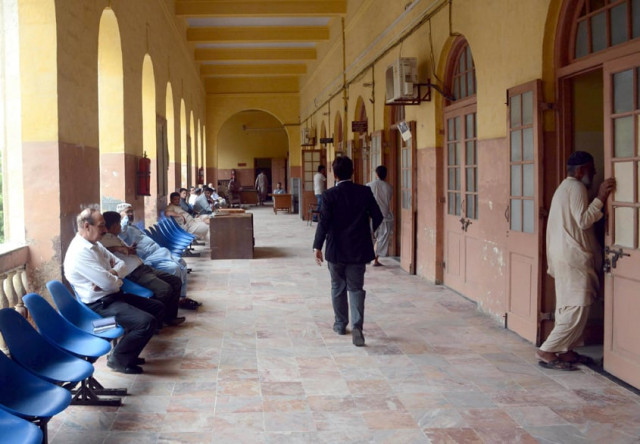Abdul Rahman Hurr Bajwa tops list with 1,362 votes, followed closely by Raja M. Aleem Khan Abbasi
The misconduct of lawyers has become a normal practice so the litigants are left with no other option but to let it go and the Bar council will always favor lawyers, even if it has to cross any limit. Case in point is the recent row with the bench. PHOTO: RASHID AJMERI/EXPRESS
The Islamabad Bar Council has issued an official notification confirming the five candidates elected for the 2026–2030 term.
According to the notification signed by Advocate General ICT and Returning Officer Ayyaz Shaukat, Abdul Rahman Hurr Bajwa secured the highest number of votes, topping the list with 1,362 votes. Raja M. Aleem Khan Abbasi followed closely with 1,350 votes.
Chaudhry Hafeez Ullah Yaqub was declared successful with 1,292 votes, while Muhammad Zafar Khokhar won with 1,290 votes.
Asif Irfan completed the list of elected members, securing 1,125 votes.
Read: Pro-govt group leads in bar elections
The five candidates will serve as members of the Islamabad Bar Council for the next five years, the notification added.
Polling for the Islamabad Bar Council elections was underway, two weeks ago. More than 6,000 lawyers were eligible to elect five members for the 2026–2030 term, with voters allowed to choose up to five candidates.
Twenty judges from the District and Sessions Courts are performing duties as presiding and polling officers. Twenty polling booths have been set up across the city, complemented by strict security at the District Judicial Complex. Courts remain closed for the day, with duty judges handling urgent matters.
Read More: Lawyer’s chamber attack suspect arrested
A total of 21 candidates were in the running, including several notable figures such as Abdul Rehman Bajwa, Asif Irfan, Chaudhry Hafizullah Yaqub, Chaudhry Muhammad Ashraf Gujar, Chaudhry Talat Mehmood Anjum, Faisal Yunus Abbasi, and former IHCBA president Raiyat Ali Azad.
The elections mirror procedures seen in other bar councils. Previous polls in Punjab saw objections over changes in presiding officers, underscoring the high stakes and sensitivity of bar politics.

